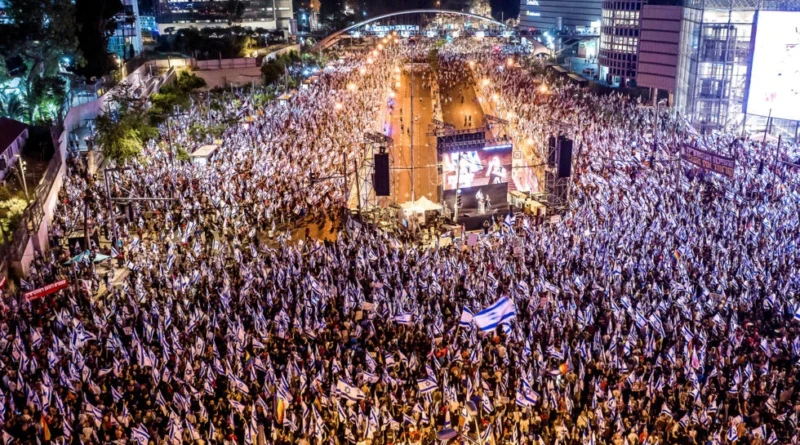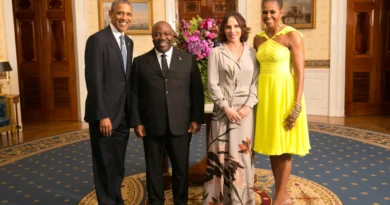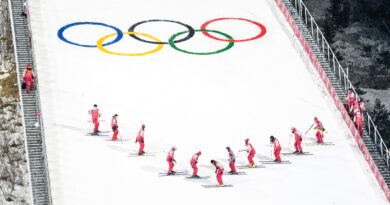Israel loses itself in its social and political fracture
EUGENIO GARCIA GASCON
The social and political situation that has prevailed in Israel since the beginning of the year is unusual. Although street protests have multiplied since January, Prime Minister Benjamin Netanyahu insists on legislating a far-reaching judicial reform that will decisively disrupt the powers of the Supreme Court and that will basically suppress its influence and veto power over the decisions adopted by the government and the Parlament.
It is true that the laws still in force were made many years ago to suit the leftist formations, that is, the Labor Party, which now barely has four seats in the Knesset and can be considered dead. But what Netanyahu wants is for the reform to respond to the interests of the comfortable majority of the right, whose representation increases year by year, so that the old Supreme Court "of the left" does not serve as an obstacle to government decisions and a parliament mostly right-wing, far-right and religious.
The reform is causing strong tensions between its supporters and detractors, who daily take to the streets to protest or support the initiative. It is no longer possible to hide that the situation is deteriorating to such an extent that a poll carried out this week by Hebrew television Channel 12 reveals that 67 percent of Israeli citizens fear that the crisis will lead to civil war.
When two thirds of the population are of that opinion, the logical thing would be for Netanyahu to stop the reform, allowing the country to reflect on the present and the future of the Jewish state that was established in 1948, and for this reflection to be followed by a orderly debate, something that does not seem to be happening.
Israel has spent many years plunging into an identity whirlwind of nationalism and religionism that is more dizzying every day, with a left that has virtually disappeared from the map, and with a nationalist and religionist indoctrination that begins in the most tender childhood. It was precisely that disappeared left that created the state structures that are now uncomfortable for the right, that constrain their aspirations, and that nationalists and religionists want to dismantle as soon as possible and at any cost.
There have been moments in recent months when Netanyahu appeared to back down, but each time has served as a springboard for him to push reform with more impetus. Certainly, there is a need for judicial reform in Israel, something that almost everyone agrees on, but the question is to what extent, and here there is no compromise.
Netanyahu and his supporters accuse the opposition of not respecting democracy. And the truth is that a large majority of Israelis support the prime minister, who only a few months ago won the last elections with ease.
As in Europe, the right affirms that democracy consists of respecting the results of the polls without paying attention to other considerations. And these times are favorable for the polls to agree with the nationalist and religionist right-wing parties in Israel, a trend that is also being seen in different European countries.
The persecution of those who are not like you, which we are seeing in Israel and in Europe, is a position that is accepted every day by more citizens who are disappointed in democracy or who believe that democracy consists of applying the majority that goes to the polls like a rolling pin.
Although the streets witness noisy protests on a daily basis, the reality is that those who participate in these demonstrations constitute a minority, a relatively large one, yes, but a clear minority. They want to put an end to a reform that the majority supports and which, if carried out, according to the opposition, would end the democratic principles (only for Jews, of course) that have been in force until now.
How far that resistance will go is unknown. For now, the spectacularity of the protests -with roadblocks, escraches in front of the homes of the ministers or the blocking of access to the Tel Aviv airport- has not forced the government to back down on its initiative. The fracture is evident, as is the bitter and aggressive polarization that is perceived in all areas.
For a Westerner it is interesting to closely follow what is happening in Israel, since it is a preview of what can happen in Europe. The path of the nationalist and religionist right is leading the country to a new version of democracy, more authoritarian and taxing than the one we have known, something that is already happening in countries like Hungary or Poland, and that will also happen in the US when Republicans win, which will deepen the fracture at the heart of the West.













